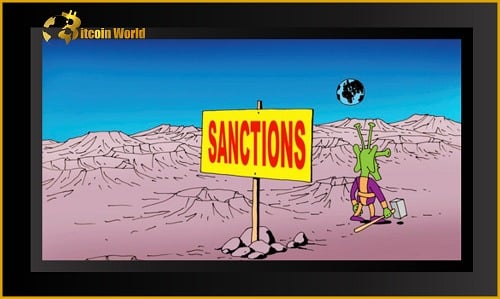The global financial landscape is constantly shifting, and recent geopolitical events are sending ripples across the world, particularly impacting nations with complex economic ties. One such nation is Venezuela. With the expulsion of certain Russian banks from the SWIFT (Society for Worldwide Interbank Financial Telecommunication) payment system, a crucial question arises: How will this affect Venezuela, a country heavily reliant on Russian banking?
Jose Guerra, a respected Venezuelan economist, was quick to raise concerns on social media about this potential fallout. His insights shed light on the immediate challenges Venezuela might face.
Venezuela’s Russian Bank Accounts in Jeopardy?
Guerra highlighted a critical issue: if Venezuelan funds are parked in Russian banks now excluded from SWIFT, key entities like PDVSA, Venezuela’s state-owned oil giant, could face significant hurdles. Imagine PDVSA trying to pay international suppliers – suddenly, a major artery for financial transactions is potentially blocked.
To break it down simply:
- SWIFT: Think of SWIFT as the secure messaging system that banks worldwide use to communicate about financial transactions. It’s the backbone of international payments.
- Expulsion from SWIFT: When banks are removed from SWIFT, it’s like cutting off their ability to easily communicate with other banks globally for international transfers.
- Venezuela’s Predicament: If Venezuelan entities, like PDVSA, rely on Russian banks now outside SWIFT, making international payments becomes significantly more complicated and potentially costly.
While concrete data on the exact amount of Venezuelan assets held in Russian banks remains scarce, reports suggest that due to previous international sanctions, Venezuela has increasingly turned to Russian financial institutions. This situation creates a precarious dependency.
Ruble’s Plunge: Another Blow to Venezuelan Reserves?
The SWIFT disconnection isn’t the only financial storm cloud gathering. The Russian Ruble has experienced a dramatic devaluation, plummeting over 30% in value following the SWIFT news. This currency crash has direct implications for any nation holding reserves in Rubles.
If Venezuela holds reserves in Russian banks denominated in Rubles, the sharp devaluation erodes the actual value of those savings. This financial double whammy – SWIFT complications and currency devaluation – paints a concerning picture for Venezuela’s economic stability.
Juan Gonzalez, a key figure at the U.S. National Security Council focusing on the Western Hemisphere, points out that these sanctions will have broader regional consequences. The interconnectedness of global finance means that disruptions in one area can ripple outwards.
Could Bitcoin Be Venezuela’s Escape Route?
Venezuela is no stranger to economic sanctions and has, in the past, been accused of exploring cryptocurrency, particularly Bitcoin, as a way to bypass traditional financial restrictions. The question now is: Could this crisis push Venezuela to further embrace Bitcoin and other cryptocurrencies?
Here’s why cryptocurrency might become more appealing:
- Decentralized Nature: Cryptocurrencies operate outside the traditional banking system, potentially circumventing SWIFT-related issues.
- Sanction Resistance: Transactions can be peer-to-peer and less reliant on intermediaries that might be subject to international regulations.
- Alternative to Fiat: In times of Ruble volatility, cryptocurrencies might be seen as a more stable store of value, although this is debatable given crypto’s own volatility.
However, it’s crucial to acknowledge the challenges:
- Volatility: Cryptocurrency markets are notoriously volatile. Relying heavily on them carries significant risk.
- Scalability and Infrastructure: Venezuela’s existing crypto infrastructure and adoption rates might not be sufficient to handle a large-scale shift away from traditional finance.
- International Scrutiny: Increased crypto adoption by sanctioned nations could attract further international attention and potentially new forms of restrictions.
The extent of Venezuela’s current cryptocurrency holdings and capabilities remains unclear. However, the current crisis could certainly act as a catalyst, pushing the nation to explore digital assets more aggressively. Whether this will be a viable long-term solution is yet to be seen.
Related Reads:
Bank DBS’s Crypto Business Grows Massively Due To Growing Demand From Investors
Looking Ahead: Uncertainty and Potential Crypto Adoption
The situation is fluid and uncertain. Venezuela faces a complex financial puzzle. The SWIFT exclusions, coupled with the Ruble’s devaluation, create significant economic headwinds. While cryptocurrency offers a potential alternative pathway, it’s not without its own set of risks and hurdles.
Will Venezuela double down on crypto as a lifeline? Or will they navigate these challenges through other means? The coming weeks and months will be critical in determining Venezuela’s financial future and the evolving role of cryptocurrency in geopolitically complex scenarios.
Disclaimer: The information provided is not trading advice, Bitcoinworld.co.in holds no liability for any investments made based on the information provided on this page. We strongly recommend independent research and/or consultation with a qualified professional before making any investment decisions.


